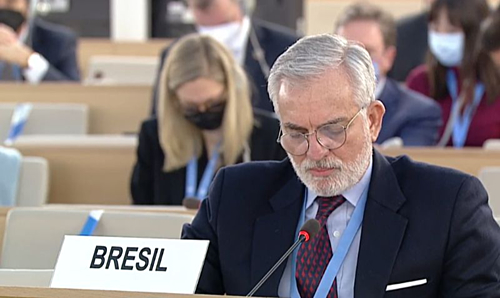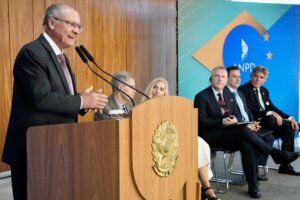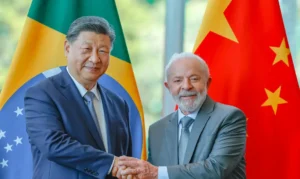
During a session of the Human Rights Council of the United Nations (UN), this Tuesday (07/03), the representative of Brazil in Geneva, Ambassador Tovar da Silva Nunes, stated that the country is willing to receive citizens and Nicaraguan citizens who have lost their nationality.
In his statement, the diplomat reaffirmed the “humanitarian commitment” of the Brazilian government, and its stance of ensuring the “protection of dispatriated people and the reduction of dispatriation”.
Weeks ago, the government of Nicaragua withdrew the nationality of around 300 people accused of being “traitors to the homeland”, by supporting movements of political and social destabilization in the country, including actions such as organizing mobilizations for the end of the government of President Daniel Ortega, considered by government sectors as attempts at a coup d’état.
The Nicaraguan government’s measure against opponents aroused criticism from several Latin American countries, including some governed by leftist sectors, such as Chile [do presidente Gabriel Boric] and Colombia [do presidente Gustavo Petro]who sponsored a joint declaration of repudiation of the Central American country’s government.
Brazil did not support the document, as did 54 member countries of the Human Rights Council. Among the American supporters of the declaration are Canada, Costa Rica, Ecuador, United States, Paraguay and Peru, in addition to the already mentioned Chile and Colombia.
“Brazil looks forward to exploring the ways in which this situation can be constructively addressed with the government of Nicaragua and other relevant authorities,” said Ambassador Silva Nunes, explaining Brazil’s abstention.
Former opposition Sandinistas
It is also worth mentioning that, despite Ortega being one of the historic leaders of the Sandinista Revolution, there are figures recognizably linked to Sandinismo among the groups that today declare themselves to be opponents of his government, including some who participated in the struggle to end the dictatorship of Anastasio Somoza (1972 -1979) and the first Sandinista governments in the 20th century.
Among these are former guerrilla commander Dora María Téllez, who was also Minister of Health during the government of the National Reconstruction Board, between 1979 and 1985. This is also the case of Víctor Hugo Tinoco, who became vice-chancellor of Nicaragua in the 1980s.
Currently, both are considered by the Nicaraguan government as “allies of destabilizing groups”.
Source: www.brasildefato.com.br

